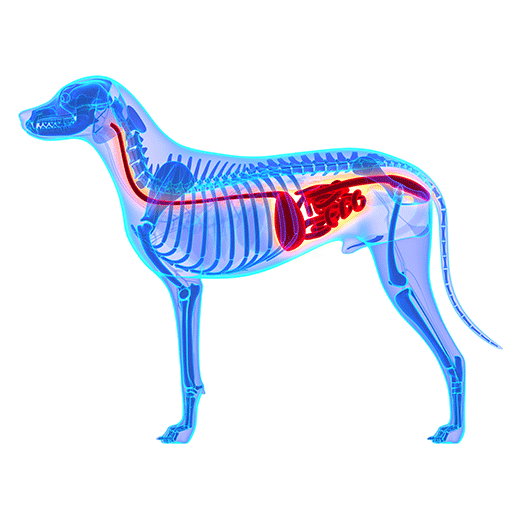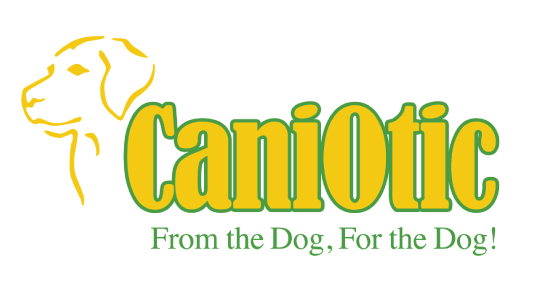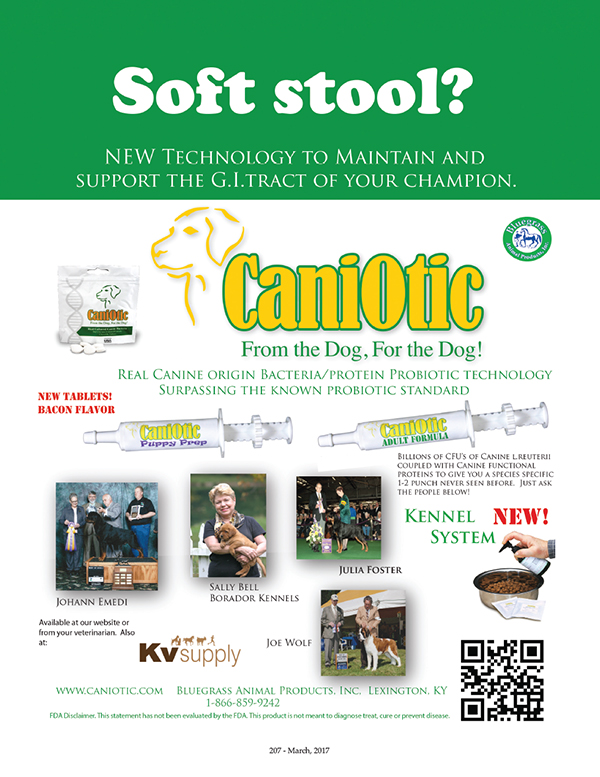Do You Really Understand What PROBIOTICS Are And How They Benefit Your Dog?
Probiotics are one of the current hot topics for canine care. But do you really understand what they are and how they benefit your dog? From general health to coat and physical performance, the canine gastro intestinal tract is a large factor. The following article is the first of two that will define the history and science, to ultimately assist you in making an educated choice regarding your dog’s well being.
Ellie Metchnikoff, 1908 Nobel Prize winner, was one of the first scientists to refute the accepted ideology that all gastrointestinal microbes were harmful. “This belief is erroneous,” he stated in defense of their benefits. “There are many useful microbes amongst which the Lactic bacilli have an honorable place.”
In support of his theory, Metchnikoff observed the longevity of Bulgarian peasants was the result of their consumption of fermented milk products. Thus originated the concept of probiotics, the name derived from the Greek meaning “for life.” Definitions of the term probiotic have changed over the years, the most current being: “Living organisms that when given in adequate amounts, exert a non-nutritional health benefit on the host.”
The primary groups of microbes that are considered to be of probiotic benefit are Lactobacilli, Bifidobacterium, Enterococci and yeast. Yeasts are one-celled organisms better known in the production of alcoholic beverages and baking of bread. Carbondioxide production during the fermentation process causes bread to rise.
Other strains of live yeast (Saccharomyces cerevisiae and Saccharomyces boulardii) have been shown to benefit the gastrointestinal tract. The mechanism of action is through binding pathogens (bad bacteria). The toxins produced by these pathogens are disabled by the yeast, rendering them unable to cause disease. Another benefit of yeast is the modulation of gastrointestinal tract acidity, particularly in the cecum or “hind gut.”
Lactobacilli are ever-present in the gastrointestinal tract. These organisms ferment carbohydrates to lactic acid. In the food production industry, Lactobacillus species are used as starter cultures for controlled fermentation in the production of yogurt, cheese, sauerkraut, pickles, beer, cider, kimchi, kefir and other fermented foods.

However, Lactobacillus species are very specific to their function based upon the carbohydrates fermented and the byproducts produced. For example, the Lactobacillus used for yogurt production is unlikely to be of maintained probiotic influence in animals, as it will not survive in the GI tract.
The Lactobacillus species of most significance is L. reuteri (Lr). It has been intensively researched and has been found in the GI tract of humans, horses, birds, non-human primates, cats, dogs, chickens and pigs. Evaluated for its protection against disease causing organisms, L. reuteri has been found to beneficially influence other aspects of health and metabolism.
L. reuteri’s disease protection mechanism is through competitive exclusion, the actual binding of bad bacteria and the production of metabolite that kills pathogens. In this process, L. reuteri attaches to the mucosal surface of the GI tract, preventing attachment of pathogens and thus preventing their ability to cause disease. Additionally, L. reuteri can also bind to pathogens and “escort” them out of the GI tract.
A third method of L. reuteri protection is the production of a metabolite called Reuterin which kills pathogens without influencing Lactobacilli and other good bacteria. L. reuteri can be described as the policeman of the GI tract, living attached to the surface as it monitors and controls the population of bacteria.
Recent studies of L. reuteri in humans and animals present the possibility of exciting health benefits. L. reuteri lives attached to cells of the mucosal surface, allowing for actual communication between bacteria and host. It is also involved in the modulation of the immune system through the presentation of antigens (foreign proteins or particles that can cause allergic responses) to the dendritic (immune responsive) cells of the GI tract.
Therefore, L. reuteri is thought to be critical to initiation of and maintenance/modulation of the immune response. Studies have shown gastrointestinal flora is vital to the development of the infant immune system and maintenance throughout life. Other research has shown a relationship of L. reuteri to blood glucose in diabetes, obesity, autism, cancer and some aspects of mental health.
This is not to suggest that L. reuteri will cure or prevent everything from world war to world hunger; however, it does suggest the critical importance of a genera of bacteria first observed by Metchnikoff over 100 years ago.
Click here for more information on CaniOtic for dogs
Short URL: https://caninechronicle.com/?p=123538
Comments are closed














